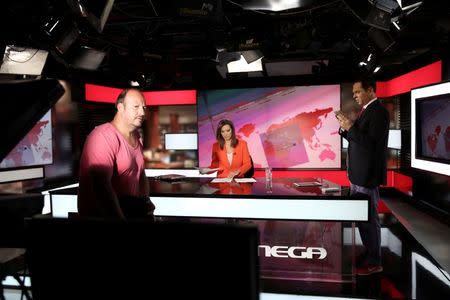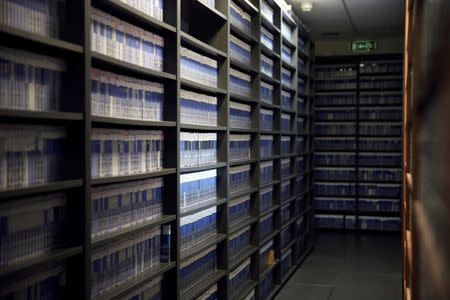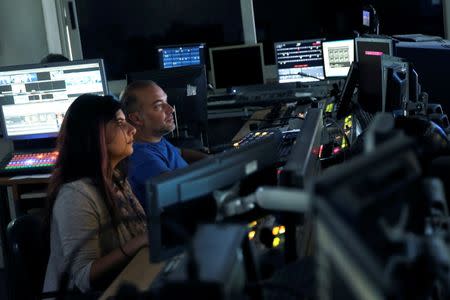Greece launches auction for TV licences, defies media protests
By Renee Maltezou ATHENS (Reuters) - Greece's left-led government launched an auction of four nationwide TV licences on Tuesday, defying protests by broadcasters which have criticised the process as an attempt to control media in the crisis-hit country. Prime Minister Alexis Tsipras' government says the move will help bring order to a sector mired in debt and discredited because of its political links. Broadcasters, who have mounted a legal challenge to the process, say it is an attempt to muzzle them. Greece has eight TV channels broadcasting nationwide, meaning four will have to suspend operations after the licensing process is completed. The starting price for bids was set at 3 million euros. Bidders include the operators of most existing channels, among them Skai TV owner Yannis Alafouzos and the Vardinogiannis family, which owns channel STAR. Four new companies are also set to bid, including Dimera Media Investments Ltd of Russian-born Greek businessman Ivan Savvidis, who also owns the PAOK soccer club, and Alter Ego, owned by Greek ship owner Evangelos Marinakis. Representatives of each bidder were on lockdown at the Press Ministry to ensure no leaks in a process likely to continue for two days. One of the representatives was seen carrying in a mattress and mobile phones were banned. The auction process will see the price for a licence increase in increments of 500,000 euros from the 3 million euro starting level until there are only two contenders left, who will then submit sealed final bids. Existing operators who fail to secure a licence will have 90 days before going off air, the government said. "Frankly, this whole process is a mess and we have real concern that it's preventing free competition in the private sector," said one TV executive, speaking on condition of anonymity. "It's another unfortunate example of the government using extraordinary measures to take more control of the country’s media." The Greek government has brushed off the criticism. It says current TV stations are operating illegally because their licences were not acquired through a tender, and that media businesses have not paid their share to the cash-strapped state. The government says media along with business and political elites formed a triangle of power that lay at the root of Greece's financial problems. "After 27 years, an auction conducted in a fully legal and transparent way will bring order to a TV landscape with a key role in forming political life in this country for years," said Nikos Syrmalenios, a lawmaker for Tsipras' ruling Syriza party. "It should be viewed as a positive development ... despite the protests and the objections." A Skai TV video mocked the conditions in which the auction process was held, describing it as "a reality show" aimed at distracting the public from economic hardship. Leading private channel MEGA TV, which employs hundreds of people, did not qualify to bid because it has not settled loan issues. "The government's decision to reduce the number of private broadcasting networks to just four is a way in fact to close down private channels that are not friendly to the government," said Manolis Kapsis, news director at MEGA. (Reporting by Renee Maltezou; Editing by Catherine Evans and Alison Williams)

 Yahoo News
Yahoo News 





